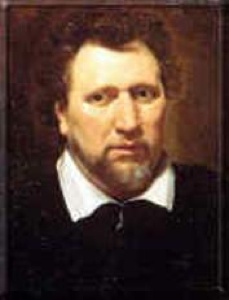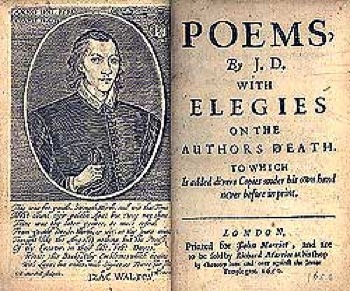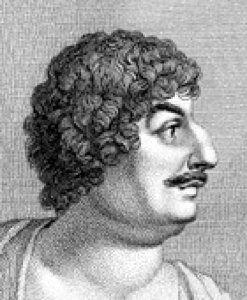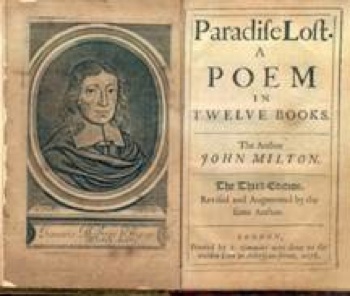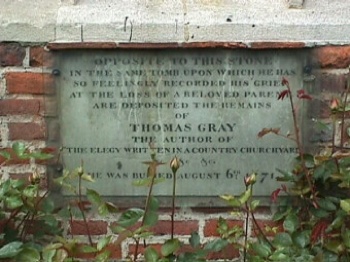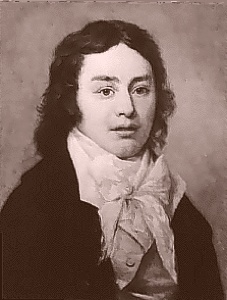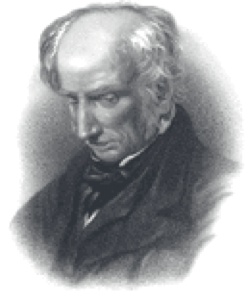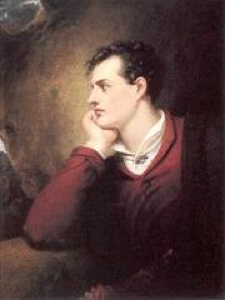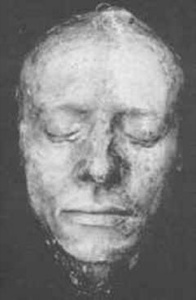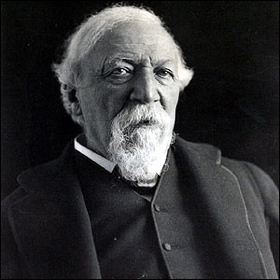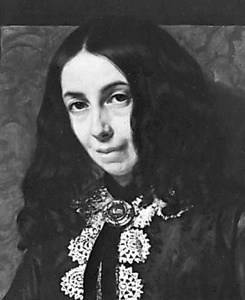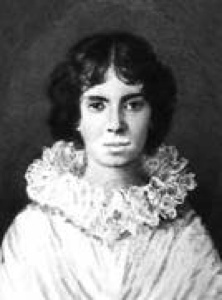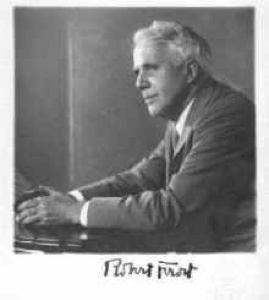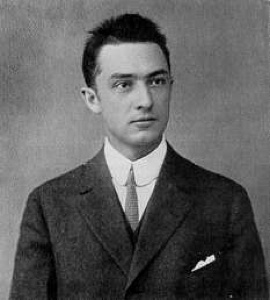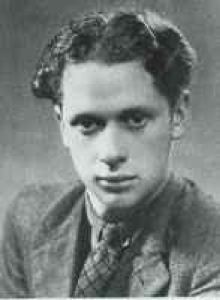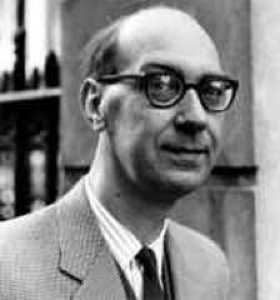The samples I have included are representative of the development of poetry over some 800 years, but without going into technical or critical detail; that is to say, I have tried to provide examples that may, notwithstanding any deeper meaning, be appreciated at face value. Note that the list is fairly traditional, in that there are no examples of ethnic verse. This is purely for the reason that I have limited my selections to works with which I am familiar (ie. largely British and, to a lesser extent, American). It was extremely difficult restricting the list to the 20 excerpts detailed below and, whilst literary merit was my primary criteria, (arguably) my one indulgence was the William Carlos Williams poem. If your own favourite is not here, tell us about it.
[Loose translation] Summer has arrived, Sing loudly, Cuckoo! Seeds grow and meadows bloom And the forest springs anew The ewe bleats after the lamb, The cow lows after the calf. The bullock leaps, the buck farts, Sing merrily, Cuckoo! This wonderful lyric is one of the most famous examples of Middle English (1066-1450) and, although it was traditionally sung as a “round”, is also commonly taught as an introduction to Middle English literature. It is thought to be written in the Wessex Dialect. W. de Wycombe, a late 13th century English composer and copyist has been suggested as being the author, but there is little evidence to support this. It is typically attributed as Anonymous. Note that a round is a musical piece in which two or more voices repeatedly sing the same melody, but with each voice starting at a different time. “Row, Row, Row Your Boat” is an example of a round that most people will be familiar with. Interesting fact: whilst some commentators translate verteth as “twisting” (or whatever) the word is, in fact, the earliest written example of vert, the Middle English version of fart! And here is a very nice choral version for your listening pleasure, in counterpoint.
Image: Shakespeare’s First Folio, 1623
Shakespeare who? A great sonnet from the nonpareil! Interesting fact: Shakespeare ultimately had no descendents – apparently, his grandchildren all died!
I was so tempted to quote Jonson’s famous Song : To Celia, which includes the famous line “Drink to me only with thine eyes”, but this lesser known example of his work is typical of his lyricism. It was published as one of ten linked pieces in 1623. A friend of William Shakespeare, Jonson was a complex character; he apparently liked an argument and could be arrogant, but was also noted for his sense of honour and integrity. Not quite a genius…but still one of the giants of English literature. Interesting fact: Jonson is the only person buried standing up in Westminster Abbey (London). His grave bears the famous epitaph “O Rare Ben Johnson” – yes, the inscription erroneously includes an “h” in his name – the engraver made a mistake! According to Westminster Abbey: In 1849, the place was disturbed by a burial nearby and the clerk of works saw the two leg bones of Jonson fixed upright in the sand and the skull came rolling down from a position above the leg bones into the newly made grave. There was still some red hair attached to it.
These famous words by John Donne (pronounced “Dunn”) were not originally written as a poem – the passage is taken from the 1624 Meditation 17, from Devotions Upon Emergent Occasions and is prose. The final 3 lines are possibly amongst the most quoted excerpts of English verse. Interesting fact: Donne was Dean of St Paul’s Cathedral (London)
Born in London’s Cheapside, Herrick was the seventh child and fourth son of Nicholas Herrick, a prosperous goldsmith, who committed suicide when Robert was a year old. He ultimately took religious orders, and became vicar of the parish of Dean Prior, Devon in 1629, a post that carried a term of thirty-one years. It was in the secluded country life of Devon that he wrote some of his best work. The over-riding message of Herrick’s work is that life is short, the world is beautiful, love is splendid, and we must use the short time we have to make the most of it (“carpe diem”). He is also renowned for frequent references to lovemaking and the female body.
Richard Lovelace was born a nobleman, being the firstborn son of a knight. On April 30, 1642, on behalf of Royalists in Kent, he presented to Parliament a petition asking them to restore the Anglican bishops to Parliament; as a result he was immediately imprisoned in Westminster Gatehouse where, whilst serving his time, wrote “To Althea, From Prison”, which contains – as per the excerpt given – one of the more famed lines of English verse “Stone walls do not a prison make, Nor iron bars a cage”. Basically, Lovelace is saying that physical imprisonment/oppression cannot stifle his imagination or spirit. Interesting fact: While in prison, Lovelace worked on a volume of poems, titled Lucasta, which was considered to be his best collection. The “Lucasta” to whom he dedicated much of his verse was Lucy Sacheverell, whom he often called Lux Casta. Unfortunately, she mistakenly believed that he died at the Battle of Dunkirk in 1646 and so married somebody else. Oops!
Milton ! Another literary giant. Possibly ranked, in terms of sheer literary genius, second to Shakespeare. Paradise Lost is an epic, dealing with the fall and subsequent salvation of Man. So great was the contemporary acclaim for Milton’s poetic epics, that other writers began to avoid writing long poetical works…which contributed to the birth of the novel as a literary genre. Interesting fact: Milton became blind, and most of his prodigious works were dictated to a secretary. Also: as a student at Cambridge University, Milton was so vain about his appearance that he was nicknamed “the Lady of Christ’s College”.
Image: Inscription on the Church at Stoke Poges refering to Gray’s Elegy
Gray’s Elegy (an elegy commemorates death) was written after the passing of one of Gray’s close friends, and is a meditation on the mortality of man. Gray was Professor of History and Modern Languages at Cambridge and, despite not being a prolific writer, was one of the most prominent poets of his day He was buried in Stoke Poges (near Windsor, England) the village whose churchyard was where he composed the Elegy. Interesting fact: although he became a literary giant of his age, Gray only published 1,000 lines of poetry during his lifetime – this was due, largely, to his acute fear of failure.
This is a good example of a poem having as many dimensions as you might like to afford it. On the one hand, there is no certainty as to exactly what Coleridge is talking about. However, it is also deemed by many critics to be profoundly symbolic (art v nature etc.). The poem does appear to most to have obvious sexual imagery, though Coleridge himself did not elaborate on any hidden depths or symbolic undertones. Kubla Khan was, upon its publication, widely denigrated by contemporary critics. Today, it is viewed as a work of genius. Interesting fact: Coleridge (possessor of an egregious opium addiction) stated that he woke one morning having had a dream/vision of the entire text of Kubla Khan. The poem remained unfinished because, as he was in the midst of writing it down, he was interrupted by a knock at the door – it was a local village tradesman. After some small talk the villager departed, but Coleridge had now lost his train of thought and could not remember the rest of the poem! Bummer!
Much of Wordsworth’s poetry was concerned with nature. He was a well-traveled individual, accompanied on his excursions by his sister, and lifelong companion, Dorothy. He was a prolific poet, and every school pupil will probably be familiar with his poem Daffodils. Interesting fact: Wordsworth was born in a town with the improbable name of Cockermouth.
George Gordon Byron (the 6th Lord Byron) was an egotistical and temperamental person who during his own lifetime witnessed his reputation as an individual and as a poet reach lofty heights for a time only to plummet due, in no small part, to his scandalous private life (he married a wealthy heiress who left him after a year of marriage for reasons that were greatly speculated upon but never divulged). In fact, his poetry was thereafter belittled so much he left England, never to return. His literary reputation has, of course, been more than restored since his death. She Walks in Beauty was inspired by his being smitten at the beauty of his first-cousin, whom he met at a funeral – she being dressed in black mourning attire. Interesting fact: Byron had a club foot, and his sensitivity to this is reflected in some of his works.
Image: Keats’ deathmask
Having already lost both parents, Keats wrote these soulful lines upon learning that his brother was dying and that he himself was suffering from tuberculosis. He views the nightingale’s song as lasting and eternal, and as a counterpoint to his own deeply-felt mortality. Having said this, Keats could also turn his hand to some of the most beautiful lines in the English language eg. To Autumn). Interesting fact: Keats was a doctor who was tormented by operations carried out – as was the norm in his day – without anaesthetic. Also, it seems that our friend Lord Byron was a little jealous of Keats’ obvious poetic talents. In letters to contemporaries he described Keats’ works as “mental masturbation”, and wrote of “Johnny Keats’ piss-a-bed poetry” Charming! To be fair, he wrote generously of Shelley (well, of his personality, if not of his works).
Wonderful words imaginatively expressing an ex-patriate’s nostalgia for his home country Interesting fact: Stephen King’s Dark Tower series was inspired by Browning’s famous work “Childe Roland to the Dark Tower Came”. Also… Browning was the first person ever whose voice was able to be heard after his death ! He attended a dinner party in 1889 (the year he died) and was persuaded to talk into a phonogram (a wax-cylinder recording device). He (somewhat falteringly) read his famous work How They Brought the Good News from Ghent to Aix, which you can listen to here .
Elizabeth Barrett Browning was the wife of the poet Robert Browning and, though the theme of her works was often social injustice, she shows in these well-known lines that she could turn her hand to romantic poetry – a fact well understood by her husband, who had to insist that she publish them. I think the words speak for themselves, and that it is fairly pointless to try and attribute any profound meaning to them. Interesting fact: Barrett-Browning, having never been unwell, was prescribed opium at age 15 and suffered from unknown illnesses (so called “nervous disorders”) for the rest of her life.
Image: Fitzgerald’s grave.
Fitzgerald’s Rubáiyát is a (loose) translation of the work of 11th century Persian poet Omar Khayyam. It’s not a particularly consistent translation, but was a staple text for English students for many years (not so much today). It has been pointed out that the “thou” to which Fitzgerald refers in the second line of the famous tract, above, refers to a male (given that there does not appear to be any reference to women in this work). Interesting fact: Fitzgerald was a vegetarian who, erm, apparently hated vegetables. He mostly lived off of bread and butter and fruit.
Another who is commonly held to merit the title “genius.” This poem is reflecting, in a remarkably nonchalant manner, upon death. This particular poem has been described as “flawless to the last detail” by at least one eminent critic. Interesting fact: reclusive in nature, only 2 of Dickinson’s 1,000+ poems were published during her lifetime – and these 2 without her permission!
from The Road Not Taken (1916)
Just a few lines from two of Robert Frost’s more famous works. Frost remains one of America’s pre-eminent poets, and there is often a genial simplicity in his words that continues to make his poetry accessible. Although a common theme in Frost is individuality or independence, I cannot help but think that he doesn’t follow through enough. Listen to Frost read The Road Not Taken.
Forgive me they were delicious so sweet and so cold. I’m not sure what is so compelling about this; maybe it is the simplicity of a writer who liked to create imagery about everyday people in their everyday lives. Whatever the case…I do know that most people, after a few readings, come to also love this short poem without really knowing why. Interesting fact: Williams was a doctor. Listen to him read one of his other works (Elise)
Dylan Thomas, one of the 20th century’s more influential poets, wrote this to commemorate the death of his father. The poem (which in its entirety has 19 lines) has only 2 rhymes throughout. Interesting facts: it is widely held that Robert Zimmerman adopted the name Bob Dylan as a homage to Dylan Thomas, who was somewhat of a Bohemian cult figure in the USA. Widely believed to be an alcoholic (a rumor that Thomas himself “promoted”), there is much evidence to suggest that this was not the case (including the state of his autopsied liver). Listen to Dylan Thomas, himself, reading the above poem.
Man hands on misery to man. It deepens like a coastal shelf. Get out as early as you can, And don’t have any kids yourself. Who said modern poetry is dead! Undoubtedly Larkin’s best known poem, according to wikipedia “It appears in its entirety on more than a thousand web pages. It is frequently parodied. Television viewers in the United Kingdom voted it one of the Nation’s Top 100 Poems”. Cynical..yes, but also memorable. Interesting fact: Larkin’s reputation was tarnished after his death. A biography based on his papers suggested that he was preoccupied with pornography and racism. Contributor: kiwiboi


